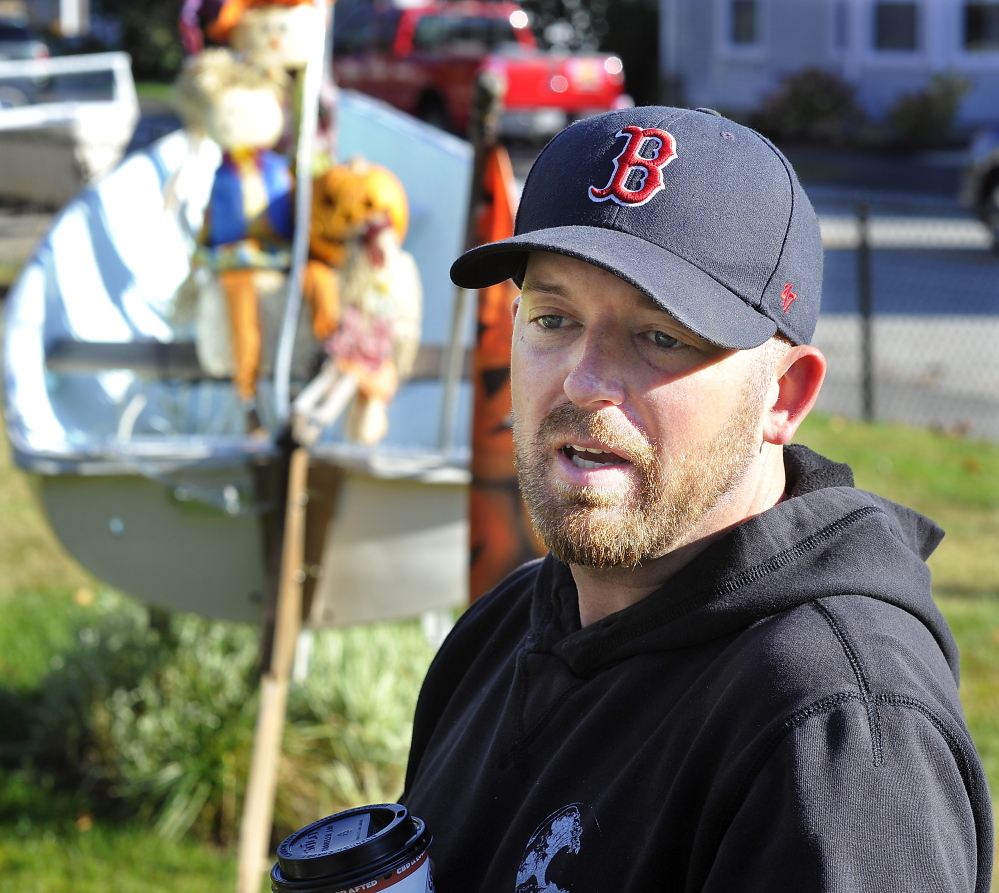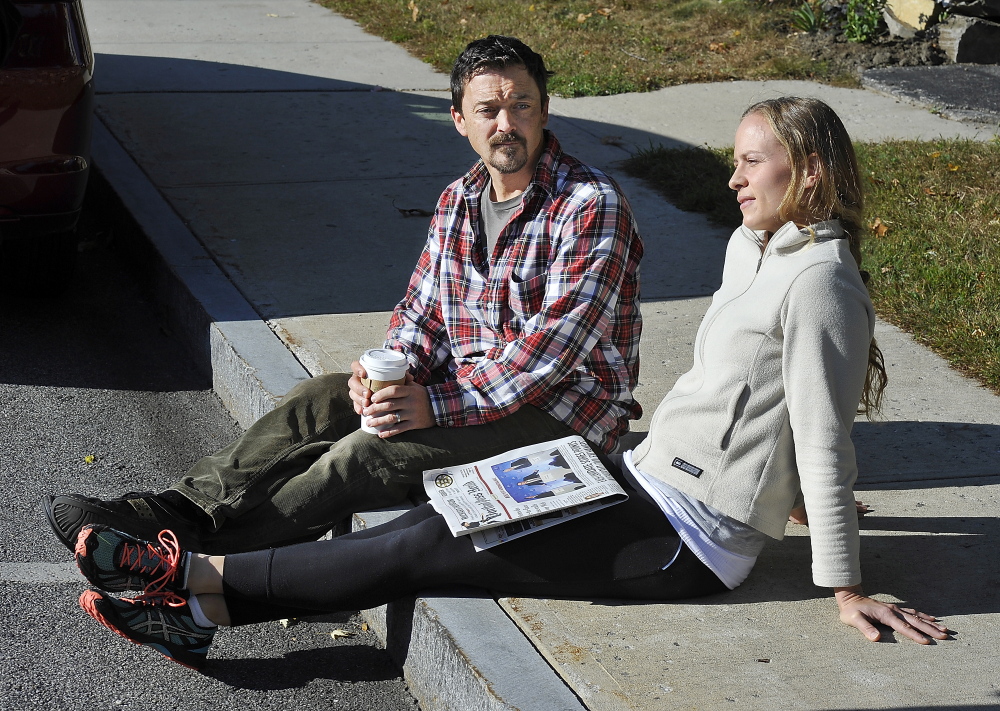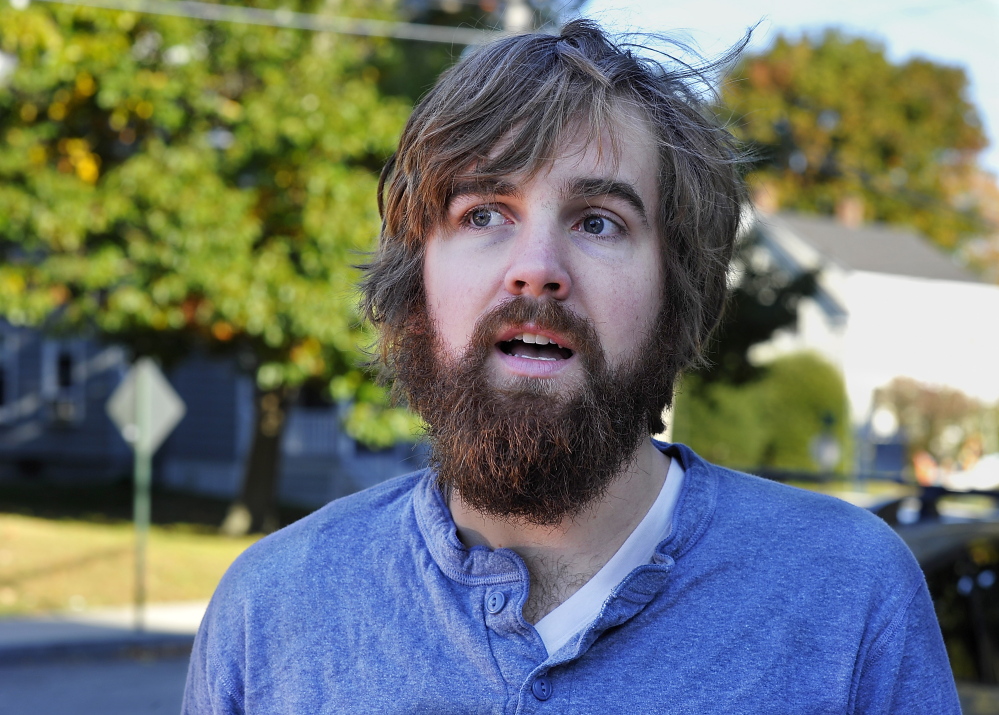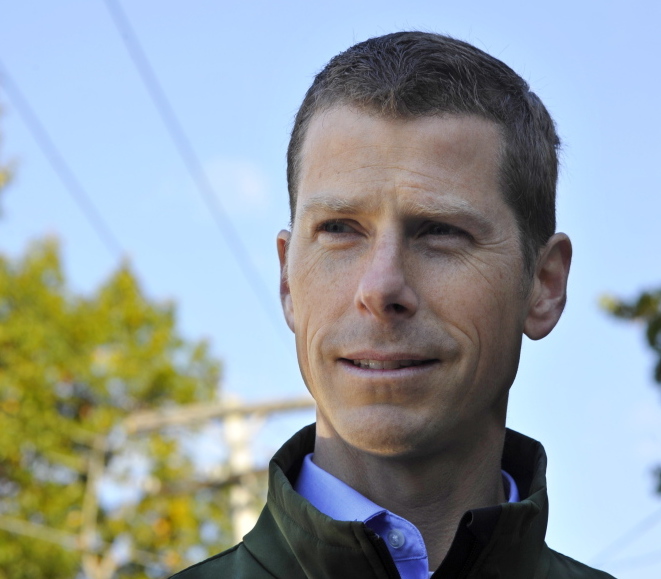SOUTH PORTLAND — Lewiston Mayor Robert Macdonald said he is “apoplectic” about an upcoming vote that could declare it legal for adults to possess small amounts of marijuana in his city.
In South Portland, Police Chief Edward Googins is adamantly opposed to a proposal that would legalize the drug there. “It’s not a good thing for our community and it’s not a good thing for our state,” Googins said.
But if legalization advocates are right, the two community leaders are among a shrinking minority of Maine voters. In these two cities and in communities across the state, there is a growing realization that legalized recreational use of marijuana is on its way and that the state might as well regulate and tax the drug, according to advocates who led the charge to put legalization questions on the Nov. 4 ballots in the two cities.
“Everywhere you go there’s a thick Maine accent that says, ‘Just legalize it and tax the hell out of it,’ ” said Rep. Diane Russell, D-Portland, a longtime proponent who has introduced three marijuana legalization bills in the Legislature.
The Lewiston and South Portland votes are seen largely as symbolic because marijuana possession remains illegal under state and federal law, and local police say enforcement won’t change. But the outcomes will serve as indicators of Maine’s appetite for legalization and whether a future statewide referendum on the question might add Maine to the legalization movement.
Portland residents voted 2-1 in favor of legalizing recreational use of pot in 2013 – the first such vote by any city on the East Coast. This gave advocates a powerful boost to start the statewide campaign. But the movement has faced stronger opposition as it moved beyond the state’s largest and most politically liberal city.
The votes on Nov. 4 are part of the Marijuana Policy Project’s strategy to get marijuana legalized in a dozen states by 2016. Maine, where medicinal marijuana use has been legal for years, is seen as fertile ground for the movement.
‘THERE’S … A LOT OF MOMENTUM’
The push comes as national support for legalization is rising.
Last year was the first that a clear majority of Americans – 58 percent – supported legalization in an annual survey. When the Gallup polling company first asked the question in 1969, only 12 percent favored legalization. The New York Times, in an editorial last summer, supported allowing states to legalize marijuana use, arguing that the war on drugs has failed when it comes to pot.
In 2012, Washington and Colorado became the first states to legalize the recreational use and sale of marijuana. In November, Oregon and Alaska will vote on the question.
Robert Mikos, a leading expert on federalism and drug law who teaches at Vanderbilt University Law School, said the legalization movement began with medicinal use of marijuana.
“It’s a clear trend and there’s a clear direction to that trend. I’m not surprised Maine is one of several states that will consider (legalization) in the next couple of years,” he said.
David Boyer, Maine political director for the Marijuana Policy Project, the group leading the legalization movement in Maine, said he believes the idea has wide support across the state. He said Maine has a “libertarian streak” and many Mainers feel it is time to end the prohibition on marijuana.
“There’s been a lot of momentum in a short amount of time,” Boyer said. “It’s really exciting.”
However, concerns about legalization’s impact on young people are fueling public stands against it, giving hope to Scott Gagnon, director of Smart Approaches to Marijuana Maine, a group opposing legalization.
“There is this narrative that comes from the legalization advocates that it’s an inevitable, foregone conclusion,” Gagnon has said. “I think we’re in a good position to push back against that momentum and feeling of inevitability.”
PAVING THE WAY TO THE BALLOT
Months after Portland voted in November 2013 to legalize recreational use, the Marijuana Policy Project began collecting signatures to get similar proposals on the ballot in South Portland, Lewiston and York. Boyer said the communities were chosen because they represent a wide spectrum of Mainers.
South Portland has “no trouble charting new territory” as evidenced by its ban on tar sands oil, Boyer said. Proponents wanted to test the waters in Lewiston to see how Franco-Americans – who supported the statewide medical marijuana initiative in 2009 – feel about recreational use.
And in York, a small coastal town, police issue many citations for marijuana possession but residents seem to support legalization, Boyer said.
But it was York that provided the first setback for the legalization campaign. The York Board of Selectmen twice rejected petitions to put the measure on the ballot, saying it would contradict state law, and therefore violated the town charter. The rejection was upheld in court.
“It’s definitely a speed bump,” Boyer said.
In South Portland and Lewiston, however, pro-legalization campaign volunteers hear more support than opposition, he said. And advocates point to legalization in Colorado and Washington, and the generation of tax revenue from pot sales in those states, as evidence of the momentum.
“That money is on the table here; it’s just a matter of having taxed and licensed businesses,” Boyer said.
This year, Colorado collected $21.6 million in taxes and fees on sales of marijuana that topped $30 million a month this summer, according to the Colorado Department of Revenue. Marijuana sales in Washington will bring in nearly $190 million in state revenue over four years starting in 2015, according to a prediction from the Economic and Revenue Forecast Council.
Shifting attitudes toward the drug have become apparent among voters, as well as some local and state officials.
Lewiston City Councilors Leslie Dubois and Donald D’Auteuil and school board member Matthew Roy signed the petition to put the question on the ballot in that city.
“Law enforcement resources would be better spent addressing serious crimes instead of adults possessing small amounts of marijuana,” Dubois said. “I personally don’t use it, but I have friends and neighbors who do. … I’m using my voice for a lot of those users.”
Supporters also maintain it would be easier to limit youth access to the drug if it is sold only to adults 21 and older by licensed and regulated businesses, rather than drug dealers on the street, who can sell to anyone.
“Prohibition has done nothing to keep children safer,” Boyer said.
OPPONENTS CONCERNWS ABOUT YOUTH
On the other hand, the legalization efforts in Lewiston and South Portland are facing some public opposition, which was scarce in Portland. And much of the opposition is focused on potential harm to young people.
In Lewiston, along with outspoken opposition from the mayor, the school board passed a resolution opposing legalization. In South Portland, both city councilors and school board members passed similar resolutions.
Among the most outspoken opponents in South Portland is Googins, who said police officers in his department will continue to enforce state and federal law regardless of the outcome of the November vote. “We in law enforcement are very concerned about the impact on public safety, particularly as it relates to driving,” Googins said.
Googins calls the proposal a “meaningless local initiative” and believes “there is a very strong sentiment in this community that it is not good and it will not pass. …
“I know culturally this has changed over the years,” he said. “I get it, but it doesn’t make it right. There’s too much at stake here.”
In both cities, opponents say they are concerned about the effect legalization could have on young people, whose brains are especially susceptible to damage from regular marijuana use. Studies say regular use can cause mood, anxiety and memory disorders as well as other problems.
A 2013 Maine Integrated Youth Health Survey showed that more than 34 percent of Lewiston Middle School students and more than 55 percent of Lewiston High School students believe there is “no risk” or a “slight risk” from regular marijuana use. The biennial survey showed a 54 percent increase in Androscoggin County middle school students who said they have used marijuana in the past 30 days compared to 2011.
The arguments for and against have left many South Portland voters with mixed feelings.
Dave Owen said he supports legalization, but “without a whole lot of enthusiasm. … It’s a messy situation for cities or states to take the lead,” he said. “I’m not sure I want to wish that on my town.”
Michael and Jessica Duffy said the issue is complicated – although marijuana can have medicinal benefits, it can also lead to substance abuse issues for some people. They plan to vote for legalization.
“As a citizen and a physician, I have mixed feelings about it,” Michael Duffy said. “If we could entrust that all people were using the substance responsibly, I think it would be terrific.”
Cassandra Baker is much more clear about her stance: no marijuana for recreational use. Originally from Wyoming, she said she has seen how legalization has “changed the dynamic” in Colorado.
“I don’t think it needs to be everywhere,” she said. “It’s really annoying to go everywhere and have it smell like pot.”
DEBATE IS CERTAIN TO CONTINUE
Russell, the Portland legislator who supports legalization, said she plans to submit another legalization measure in the Legislature if she is re-elected next month. She believes there ultimately should be a statewide vote on the issue, but said it is important to have legislators involved with drafting responsible policy that addresses concerns about law enforcement and public health.
Another legalization plan is expected to be announced by the Medical Marijuana Caregivers of Maine shortly after the November election. There are currently 1,533 caregivers in Maine who grow marijuana for medical use by qualified patients.
Paul McCarrier, legislative liaison for the industry group, said he wants to make sure out-of-state corporate interests don’t take over marijuana production in Maine as they have in other states.
“It’s imperative that any legalization plan takes care of Maine farmers first,” he said. “If you look at what’s happened in Colorado and Washington, it’s been Big Tobacco coming in and running the industry.”
Regardless of the outcome of the Lewiston and South Portland referendums, such votes will continue to raise questions about how cities and states deal with votes to legalize a drug that is illegal under federal law, said Mikos, the Vanderbilt professor.
“This is one of the most complex legal issues I’ve ever encountered,” he said. “There will be a lot to sort out in Maine with these measures and whatever is coming down the pipeline in the next couple of years.”
Send questions/comments to the editors.







Comments are no longer available on this story